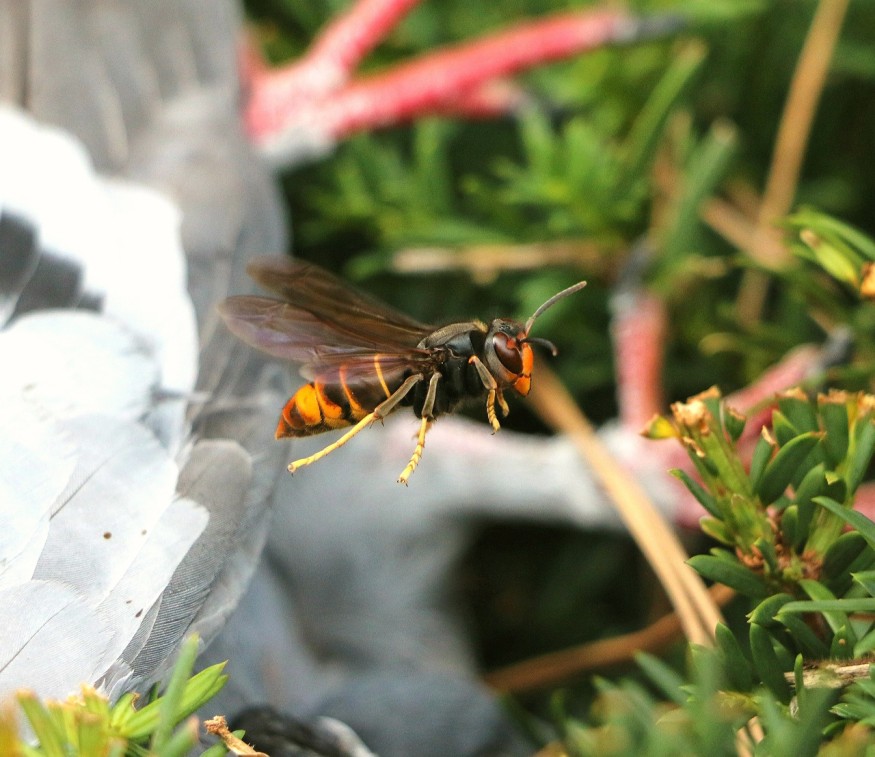Asian hornets have been a growing threat in the United Kingdom in recent years, where a population increase and attacks by the invasive, predatory wasps are lingering across Europe and other parts of the world, including France, Spain, Portugal, Japan, and South Korea.
Native in Southeast Asia, the arrival of the Asian hornet (Vespa velutina) into Europe was first reported in 2004. Experts believe the hornets descended from a queen in France. Previous theories suggest that V. velutina reached the continent most likely through cargo or the shipment of goods that were imported from East Asia.
Asian Hornet Sightings Increase

Since their arrival in France, the Asian hornets have spread rapidly nationwide and into its adjacent countries.
In France, more than 100 people were stung and injured in a span of three months back in 2018. In the United States, related cases have been reported involving the presence of the so-called "murder hornets" or Asian giant hornets, currently known as the northern giant hornets (Vespa mandarina).
Yet, the U.K. is facing an invasion threat from a different yet related species of giant wasps, which have crossed the Channel Islands, separating the U.K. and mainland Europe.
A total of 45 Asian hornet sightings have been reported since 2016, including 22 confirmed cases in 2023 so far, according to reports on Monday, September 4. Some experts expressed their concern that the hornet species may have established its colony in Keny, where the majority of sightings have been reported.
UK Bees Under Threat
The bee-eating hornets have made the headlines in the U.K. almost a decade ago. Since then, both residents and local authorities have engaged in constant monitoring of potential Asian hornet nests both in urban and rural areas.
The non-profit charity organization, Royal Society for the Protection of Birds (RSPB), urges the public to be vigilant for any Asian hornet sightings and report them to local authorities. The RSPB highlighted that the U.K. government can only enact its strategies once people report related sightings of the giant wasps.
What if Bees Disappear?
Asian hornets, also called Asian predatory wasps or yellow-legged hornets, are a non-native species in the U.K., as mentioned earlier. In this context, they pose a threat to local bee population, including honeybees (Apis). Being one of the most efficient agents of pollination, the annihilation or decrease of local bees could lead to lower seed growth and spread.
While humans are expected not to go extinct when bees disappear, the winged pollinators' absence could affect the ecosystem or agriculture in general.
According to the Natural Resources Development Corporation (NRDC), even if humans would not probably go extinct if bees disappear permanently, our diets could still be affected significantly.
For instance, the diversity of food, including apples, avocadoes, berries, onions, and other fruits or vegetables, may decrease and the remaining food products' price could skyrocket, the NRDC explains.
© 2025 NatureWorldNews.com All rights reserved. Do not reproduce without permission.





